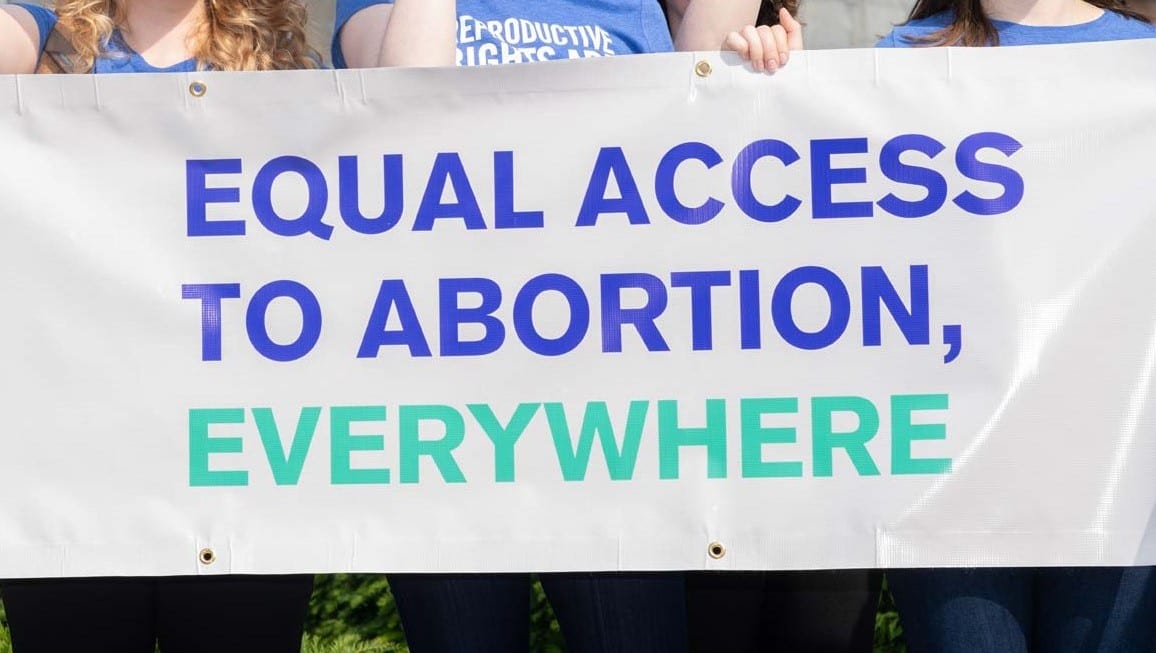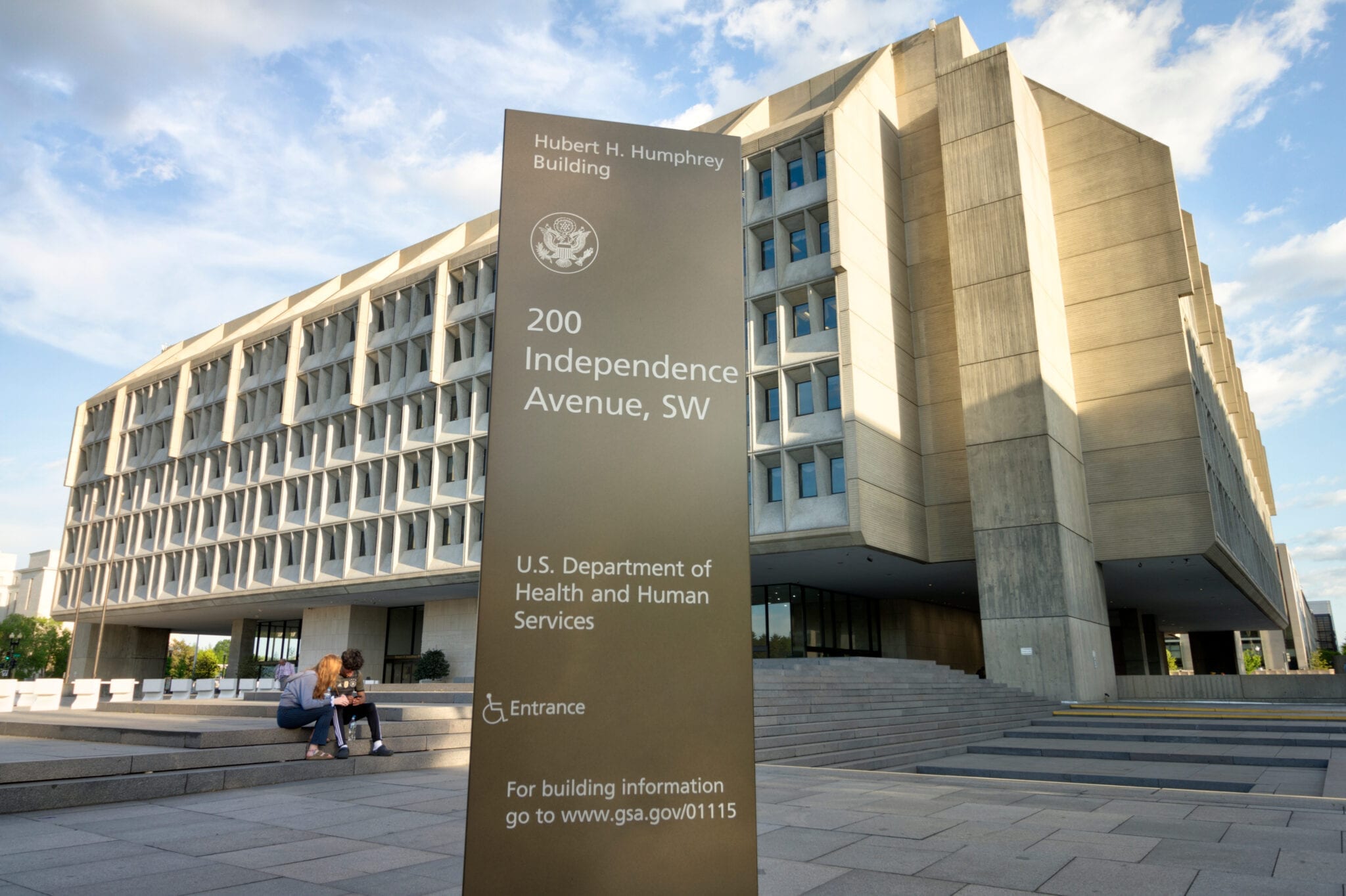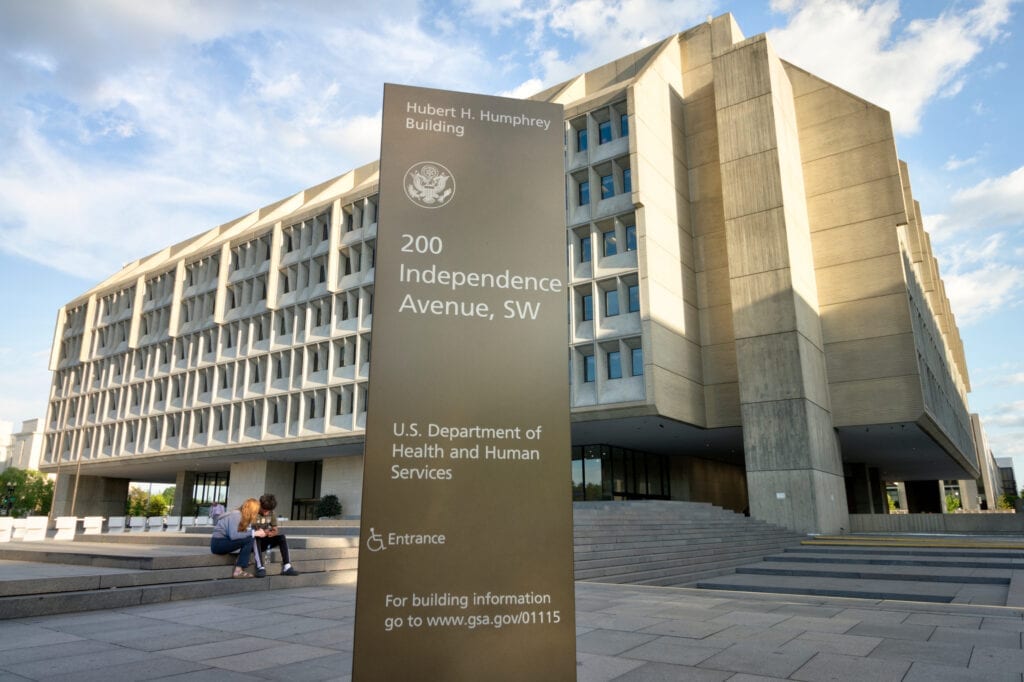Biden’s First Year: Top 13 Ways the Administration Improved Reproductive Rights
Administration's actions are crucial as Supreme Court considers the future of U.S. abortion rights.

Over a year has passed since President Biden and Vice President Harris took office, ushering in a new era of support for reproductive rights by a presidential administration. Though more work remains to be done, the Biden administration has taken a number of decisive steps in its first year to undo the harms of the Trump administration’s regressive policies and advance reproductive health access and equity in the United States and abroad.
The administration’s actions are ever more crucial since abortion rights in the U.S. are more at risk than ever, with the U.S. Supreme Court considering overturning Roe v. Wade and almost 50 years of precedent recognizing the constitutional right to abortion.
The Center for Reproductive Rights has engaged with the administration and federal agencies by making policy recommendations, commenting on pending rulemakings, and providing technical expertise on policies and programs related to reproductive rights and health. Since inauguration in January 2021, the administration has acted to improve maternal health, access to abortion, gender equality, funding for family planning services, and much more.
“We’re heartened by the Biden-Harris Administration’s progress on reproductive rights, sexual health, and gender equity and equality in its first year,” said Katherine Gillespie, Acting Director, Federal Policy and Advocacy. “We are currently facing the most hostile abortion landscape in the U.S. in decades, so we call on the administration to take even further strong and decisive actions.”
Improving Reproductive Health and Rights: The Administration’s Top 13 Actions
In the past year, President Biden and his administration have:
- 1. Championed critical legislation to advance reproductive healthcare.
The White House issued a statement in support of the Women’s Health Protection Act (WHPA)—which would protect the right to access abortion care nationwide—on September 20, 2021, before the successful House vote on this critical abortion access bill. On November 30, 2021, President Biden also signed into law the Protecting Moms Who Served Act—requiring the Department of Veterans Affairs (VA) to improve maternity care—the first of 12 bills in the Black Maternal Health Momnibus Act to be enacted.
- 2. Defended abortion rights in court.
In response to the passage of Texas S.B. 8, a law that has eliminated the vast majority of abortion access in the state, the Department of Justice filed the first-ever lawsuit by the federal government challenging the constitutionality of a state abortion restriction. In Dobbs v. Jackson Women’s Health Organization, challenging Mississippi’s 15-week ban on abortion, Solicitor General Elizabeth Prelogar submitted an amicus brief and participated in oral arguments on behalf of the United States and in support of the clinic.
WHPA would protect abortion access nationwide.
Women’s Health Protection Act
Take action to help protect the right to access abortion care in every state.
- 3. Took administrative action to protect sexual and reproductive health access in light of attacks on abortion rights.
Department of Health and Human Services (HHS) Secretary Xavier Becerra, a longtime champion of sexual and reproductive health, also took action to protect the rights of abortion providers and patients seeking abortion. The Secretary:
- Launched an Intra-Agency Task Force on Reproductive Health Access: On the 49th Anniversary of Roe v. Wade, Secretary Becerra announced the creation of an HHS-wide task force to protect and bolster sexual and reproductive health care access. As part of this initiative, each HHS division must draft a plan outlining actions it will take to advance reproductive health access, including expanding relevant research and data collection, identifying and eliminating Federal policy barriers, and reducing the stigmatization of reproductive health care as distinct from other primary care services.
- Affirmed the Church Amendment’s protections from discrimination for abortion providers: The Office of Civil Rights released guidance affirming that the Church Amendment prohibits discrimination related to employment or staff privileges against health care providers based on their participation in abortion or sterilization.
- Issued Guidance to Providers on HHS’s Enforcement of Emergency Medical Treatment and Labor Act (EMTALA): The Centers for Medicare & Medicaid Services issued a memorandum to health care providers reinforcing the long-standing legal requirements under EMTALA to provide “stabilizing medical treatment” to pregnant patients or patients experiencing pregnancy loss who present at emergency departments with an emergency medical condition.
- 4. Supported policies to end racial disparities in maternal health care.
In addition to signing the Protecting Moms Who Served Act, President Biden issued the first-ever proclamation on Black Maternal Health Week in April 2021 and highlighted his initial actions to address the health disparities faced by Black mothers and parents, including the approval of the first state Medicaid Waiver to expand postpartum Medicaid access to one year. On December 7, 2021, Vice President Harris announced a Call to Action to Reduce Maternal Mortality and Morbidity, which highlighted the maternal health provisions and investments in the Build Back Better Act and a proposal by the Centers for Medicare and Medicaid Services (CMS) to create a “birthing friendly” hospital designation. The Call to Action also promoted new guidance from CMS to state Medicaid agencies encouraging them to extend postpartum Medicaid coverage through the American Rescue Plan.
- 5. Established the White House Gender Policy Council.
On March 8, 2021, President Biden issued an executive order establishing the first-ever Gender Policy Council to advance gender equity and equality. With input from the Center and other stakeholders, the newly-created Council developed the first-ever National Strategy on Gender Equity and Equality, which includes significant commitments to expanding sexual and reproductive health care and addressing persistent inequities, bias, and systemic racism in health care.
- 6. Repealed the Domestic Gag Rule and expanded access to Title X funds.
A new rule, which took effect November 8, 2021, governing the Title X family planning program, made steps to advance health equity and repealed burdensome restrictions enacted under the prior administration on Title X funding that required health care providers to physically segregate abortion services from family planning services. HHS Secretary Becerra also announced Title X grants to providers in light of the increased need for family planning services. Thus far, the agency has awarded $7.35 million in supplementary grants to Title X providers in states across the country.
- 7. Rescinded the Global Gag Rule and restored funding to the UN Population Fund.
On January 28, 2021, President Biden revoked the Trump administration’s 2017 Memorandum on the Mexico City policy, which banned federal funding to international healthcare providers that provide counsel or advocate for abortion access, even when they use a separate funding source to do so. Biden also directed the Secretary of State to restore funding of the UN Population Fund, the lead U.N. agency on sexual and reproductive health.
- 8. Recommitted to and restored funding for the World Health Organization (WHO).
On his first day in office, President Biden informed the UN Secretary General that the United States would remain a member of the World Health Organization (WHO), which coordinates high-impact research and sets global standards on sexual and reproductive health and rights, reversing the Trump administration’s planned withdrawal from this important body.
- 9. Recommitted to reporting on reproductive rights abroad.
Under the leadership of Secretary Antony Blinken, the State Department has returned to its previous pre-Trump-era practice of reporting on sexual health and reproductive health issues in its Annual Country Reports on Human Rights.
- 10. Removed Hyde from the 2022 President’s Budget.
On May 28, 2021, President Biden became the first president in decades to submit a budget to Congress without the Hyde Amendment, which prevents the use of federal funding for abortion services.
- 11. Appointed and nominated highly qualified officials committed to advancing reproductive rights, equity, and equal justice under the law.
Appointments included Xavier Becerra as Secretary of Health and Human Services, Admiral Rachel Levine as Assistant Secretary of Health and Human Services, Chiquita Brooks-LaSure as Administrator for the Centers for Medicare and Medicaid Services, Kristen Clarke as Assistant Attorney General for Civil Rights at the Department of Justice, Vanita Gupta as Associate Attorney General, and many others.
- 12. Rescinded and replaced harmful Trump-era regulations.
- The Department of Labor’s Office of Federal Contract Compliance Programs took a substantial step towards protecting employees by proposing the repeal of an expanded religious exemption that would likely have permitted a broader segment of federal contractors to discriminate against employees on the basis of their sexual orientation, gender identity, and reproductive health choices.
- The administration improved access to abortion care by repealing a harmful separate billing requirement for abortion care by the Centers for Medicare & Medicaid Services, which created another unnecessary regulatory barrier to abortion services for patients.
- HHS has proposed the repeal of the SUNSET Rule, a Trump-era deregulatory scheme which would have permitted critical regulations to expire unless a burdensome review process was conducted.
- 13. Expanded science-backed health care access.
On April 12, 2021, the Food and Drug Administration (FDA) Acting Commissioner Janet Woodcock temporarily lifted the in-person dispensing restriction on mifepristone to improve access to medication abortion during the pandemic. The FDA made this change permanent on December 16, when it modified the Risk Evaluation and Mitigation Strategy (REMS) for mifepristone to allow certified prescribers and pharmacies to offer the medication via mail. This policy change will expand safe medication access for many, including Black, Indigenous and People of Color, those working to make ends meet, members of the LGBTQI+ community, immigrants, people with disabilities, young people, and those living in rural communities.
Read more about the Center’s work.
With the Hostile Abortion Environment in the U.S., More Action Is Needed
With abortion rights at risk in the United States—both by states introducing hundreds of ever-more-severe abortion restrictions as well as the U.S. Supreme Court’s willingness to reconsider Roe—more action is needed by the administration to protect reproductive health and rights.
The Center calls on the Biden-Harris administration to:
- 1. Continue championing critical legislation advancing access to reproductive health care.
Although the Women’s Health Protection Act has passed the House, the Senate has yet to vote on the bill. President Biden must urge the Senate to pass WHPA and the Equal Access to Abortion Care in Health Insurance Act (EACH Act) to protect abortion access, and support the passage of the remaining bills in the Black Maternal Health Momnibus Act.
- 2. Remove all federal budget funding restrictions on abortion.
While the 2022 President’s Budget did not include the Hyde Amendment, other serious funding restrictions on abortion care remain, including similar Hyde-like bans on federal funding of health insurance for federal employees and Peace Corps members. Of particular concern, Biden’s 2022 budget included the Helms Amendment, which restricts the use of foreign assistance to fund abortion “as a method of family planning,” and the Weldon Amendment, a refusal of care provision which allows health care entities to prioritize personal beliefs over a patient’s need for abortion services. The President should remove these funding restrictions in his 2023 budget proposal.
- 3. Issue regulations that expand access to reproductive and sexual health care and prevent health care discrimination.
In addition to continuing the repeal of harmful regulations, such as the existing Denial of Care Rule, the Biden administration must draft new rules that expansively interpret the nondiscrimination provisions of the Affordable Care Act and prevent employers and universities from denying contraceptive coverage to employees and students.
- 4. Activate across the administration to address the abortion access crisis.
The Biden-Harris administration must work tirelessly to protect abortion access in the face of ever-increasing threats, building on the work of Vice President Harris, the Department of Justice, the Department of Health and Human Services Secretary Becerra and his staff, and the White House Gender Policy Council.
The Center for Reproductive Rights looks forward to continuing to engage with and provide support to the Administration to advance reproductive rights for people in the United States and around the world.





